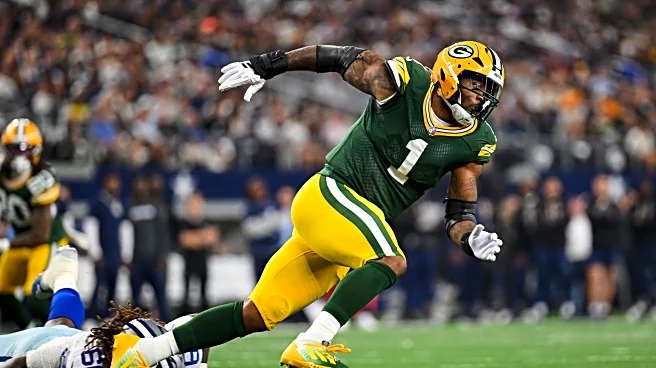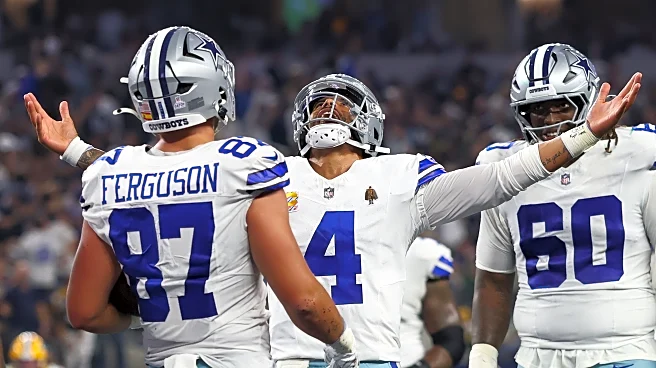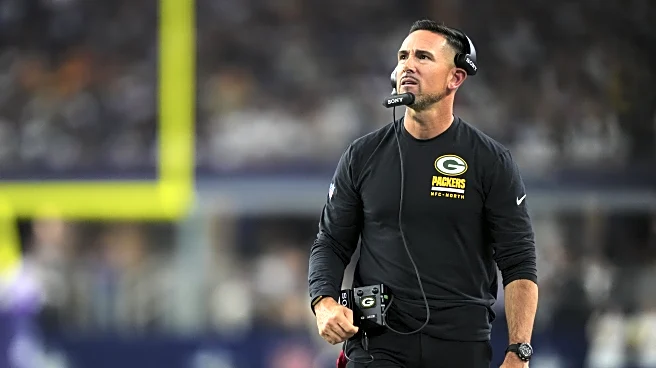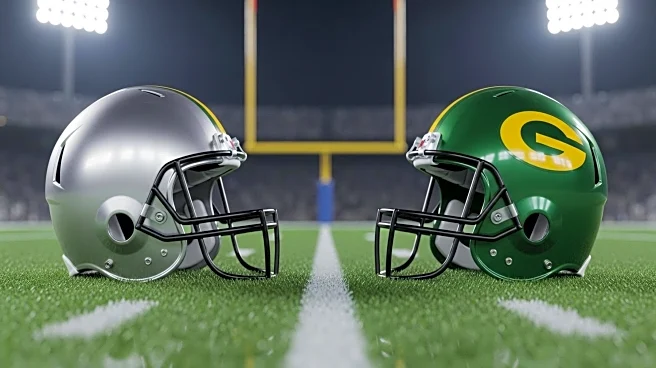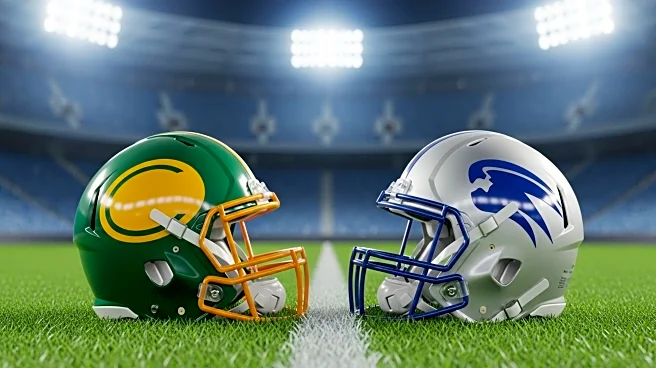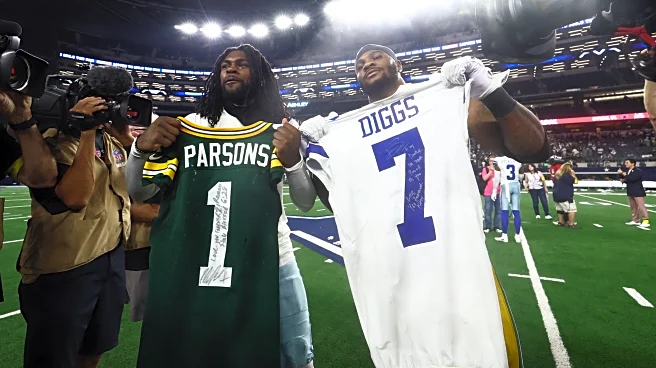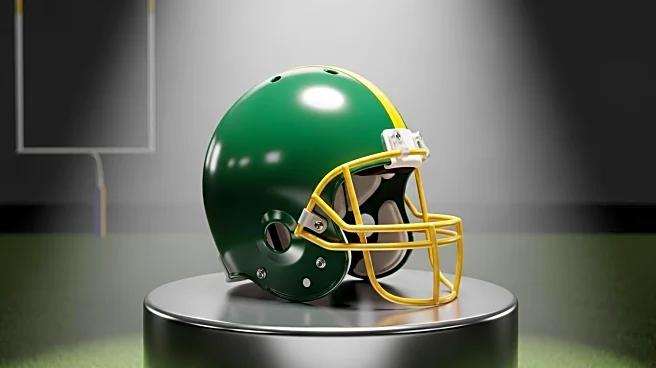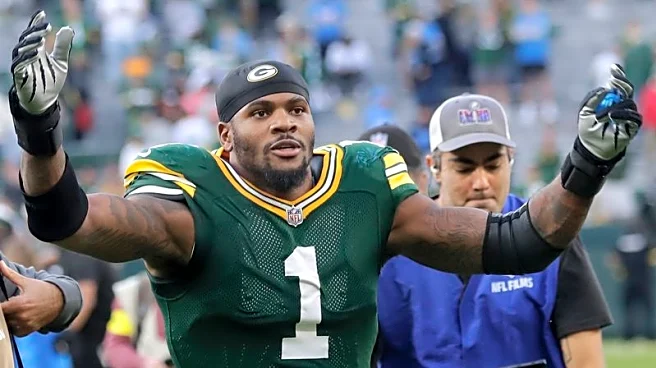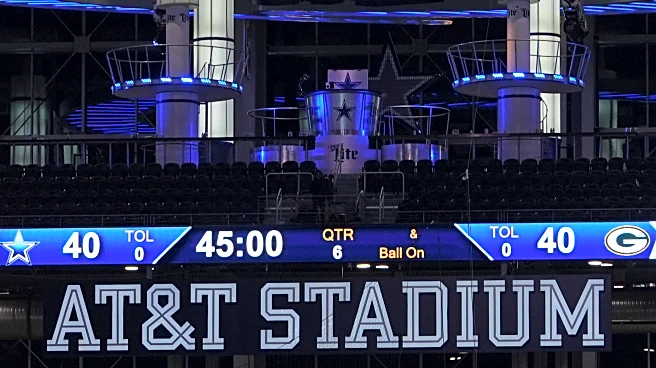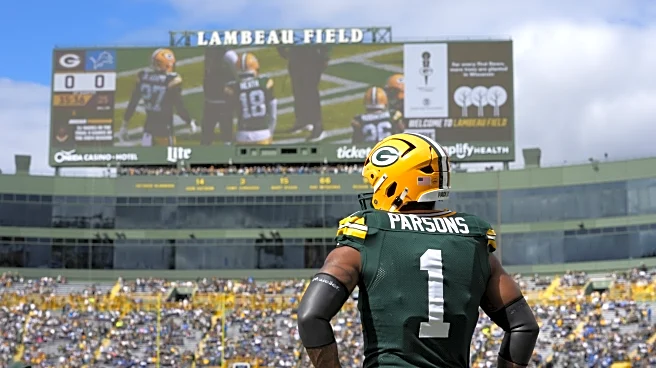What's Happening?
The Dallas Cowboys and Green Bay Packers ended their Sunday night game in a 40-40 tie, marking the NFL's first tie in nearly three years. Micah Parsons, recently traded from the Cowboys to the Packers, played a pivotal role in the game's outcome. Although Parsons was not a major factor during regulation, he made a crucial sack in overtime that prevented a potential Cowboys touchdown. This play forced Dallas to settle for a field goal, allowing the Packers to match with a field goal of their own, resulting in the tie. The game was marked by fluctuating leads and missed opportunities for both teams.
Why It's Important?
The tie between the Cowboys and Packers underscores the competitive nature of the NFL and the impact of strategic plays in critical moments. Parsons' sack highlights the importance of defensive plays in shaping game outcomes. For the Cowboys, the tie reflects ongoing challenges in their defense, which has struggled since Parsons' departure. For the Packers, the tie offers a chance to reassess their strategies and capitalize on their defensive strengths. The result also affects playoff scenarios, as ties can simplify or complicate potential paths to postseason qualification.
What's Next?
Both teams will need to evaluate their performances and address areas of improvement. The Cowboys, in particular, must focus on strengthening their defense and finding ways to compensate for the loss of Parsons. The Packers will look to build on their defensive successes and refine their offensive strategies to convert opportunities into wins. As the season progresses, both teams will aim to leverage their strengths and address weaknesses to improve their standings.
Beyond the Headlines
The occurrence of a tie in the NFL, while rare, raises questions about the league's overtime rules and their impact on game outcomes. The current format, which guarantees each team a possession, may lead to more ties, prompting discussions on potential rule changes. Additionally, Parsons' performance against his former team highlights the emotional and strategic dimensions of player trades, influencing team dynamics and individual motivations.

